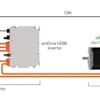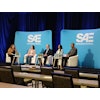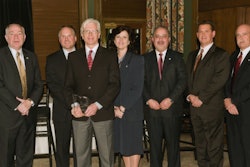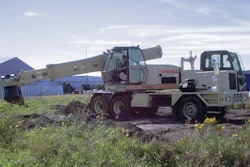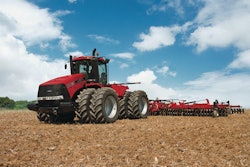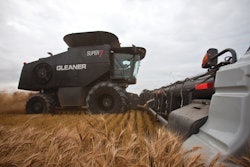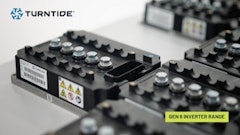In line with Caterpillar Inc.'s global commitment to sustainable development, two Caterpillar facilities achieved zero waste to landfill in 2010. The Caterpillar Remanufacturing & Components Division United Kingdom Hose Assembly (UKHA) plant in Leicester, England and the Caterpillar Logistics Services (Cat Logistics) Desford, England operations have reached 100% recycling in their respective facilities.
"Caterpillar recognizes that providing sustainable solutions starts with having sustainable operations. That's why we've established corporate long-term goals focused on sustainability for all of our operations worldwide," said Caterpillar Chairman and CEO, Doug Oberhelman. "One of those operational goals is to eliminate waste by reducing waste generation and reusing or recycling all that remains."
The Cat Logistics Desford facility consists of several buildings housing both warehouse operations and administrative offices. It provides a wide range of logistics services to many different customers and distributes materials worldwide. A global operation of this magnitude generates tons of waste each year, and the facility has had a longstanding recycling program in place. In 2008, a project team set the goal of zero landfill and 100% of waste recycled. Implemented in March 2009, the new processes quickly improved recycling percentages to such an extent that on October 2010, the site was able to record one full year of 100% recycling.
Cat Logistics' site services manager, Paul Morris, applauds the remarkable achievement. "We're extremely proud of the results of this project. It's a great thing for the environment but it's also great for our business. We've taken what used to be a cost and turned it into an asset."
Cat Logistics Desford facility results include:
- Segregation of waste has increased considerably from an original six different streams to more than 30 today and so increasing recycling opportunities.
- Many of the waste streams are now baled/bundled. Baling waste has many advantages including increased weight per volume and reduced transportation costs. The baling has reduced transportation involved by 50-percent when moving waste off site. The best example is shipping cardboard, which was previously only two tons per vehicle, and baling has increased loads to 22 tons per vehicle – an 11-fold improvement.
- Office waste was originally all collected in a single bin and sent to landfill. The introduction of smaller desktop bins has encouraged everyone to generate less waste, and segregated collection points has ensured all material is recycled.
- Through increased knowledge of the recycling industry, the facility has been able to increase recycling and prepare waste to ensure it can be recycled and the best price obtained.
- A $183,984 (pounds Sterling 116,372) cost saving was realized in the first year following implementation of the new processes.
The Desford facility achievements have been recognized throughout England. It has received the Green Apple Award from The Green Organization and reached the finals of the National Recycling Awards.
The UKHA facility achieved zero landfill by effectively increasing the facility's recycling rate by an additional 25 to 30 percent from previous years. "This was a great team effort by everyone at UKHA to achieve 100-percent facility recycling in 2010," said Pete Lee, UKHA Environmental Health and Safety Specialist.
UKHA project results include:
- A total waste management system was developed to maximize revenues generated from recyclables and to start recycling waste rubber hydraulic hoses.
- A system was created to ensure UKHA reaches and maintains 100-percent facility recycling.
- The environmental metrics reporting procedure was simplified and streamlined.
- A $15,562 (pounds 9,843) cost savings has been realized since the implementation of the project in September 2009.


